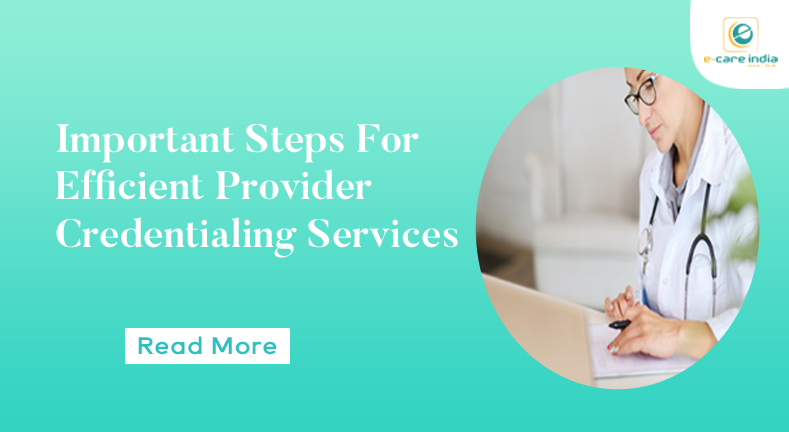
Provider credentialing is a crucial process that ensures healthcare professionals meet the necessary qualifications and standards to provide medical services, treatments to patients. The following are important steps that helps in efficient provider credentialing services:
Gather necessary information
Collect all relevant information from the healthcare professional, including their education, training, licenses, certifications, work history, references, and any other supporting documents. Having a checklist of documents can be more helpful.
Verification of credentials
Verify the accuracy and legitimacy of the information provided by the healthcare professional. This includes checking their degrees, licenses, certifications, and any other relevant credentials with the issuing authorities. Ensure the double check the dates and validity to avoid submission of an expired credentials and documents.
Primary source verification
Conduct primary source verification, which involves directly contacting the institutions or organizations where the healthcare professional received their education, training, and credentials to confirm their authenticity.
Background checks
Perform background checks on the healthcare professional to ensure they have no history of malpractice, sanctions, or disciplinary actions. If any ensure they are legally cleared.
Peer references
Obtain references from peers, supervisors, or other professionals who have worked closely with the healthcare provider to assess their clinical competence and professional behavior.
Application review
Carefully review the completed application to ensure that all required information and supporting documents are present before submitting with the insurance.
Credentialing committee review
Present the verified application and supporting documents to a credentialing committee or panel of experts for review and approval.
Decision-making
Based on the committee’s review, make a decision on whether to grant or deny the provider’s credentialing application.
Notification
Inform the healthcare professional about the credentialing decision, including any conditions or requirements they must meet.
Ongoing monitoring
Implement a system for ongoing monitoring of the provider’s credentials, licensure status, and any changes in their professional status, such as malpractice claims or disciplinary actions.
Re-credentialing
Establish a schedule for re-credentialing to ensure that the provider’s credentials are regularly updated and remain valid over time.
Provider enrollment
After credentialing approval, facilitate the provider’s enrollment with health insurance plans and healthcare organizations to enable them to provide services and receive reimbursement.
Maintain records
Keep comprehensive records of the credentialing process, including all verification and committee review activities, for auditing and compliance purposes.
It’s essential to adhere to strict guidelines and ensure accuracy and thoroughness throughout the credentialing process to guarantee patient safety and the delivery of high-quality healthcare services and also to accelerate the provider credentialing process. The best choice would be to seek help from a professional Medical Billing and RCM partner for credentialing and re-credentialing.
About Ecare
e-care India is one of the pioneers in offshore medical billing based in India that promises to avoid the revenue pitfalls due to incomplete or delayed Physician credentialing by its services. With 25 years of experience in the industry, e-care’s 3 delivery centers have been providing Medical Billing and Physician Credentialing services seamlessly to its clients. To know more about e-care and its services, contact us today at 813-666-0028 or log on to Physician Credentialing & Provider Enrollment Services (ecareindia.com)
